
Ce que vous devez savoir sur l’acide hyaluronique bio
17/05/2021
Le terme « acide » a de quoi effrayer… et pourtant, l’acide hyaluronique est une molécule présente naturellement dans notre organisme. L’acide hyaluronique joue un rôle essentiel dans la protection de l’épiderme. Il permet d’éviter la déshydratation de la peau tout en la repulpant. Sérum à l’acide hyaluronique bio, crème à l’acide hyaluronique bio, crème au collagène et à l’acide hyaluronique bio… on retrouve cette molécule dans la composition de nombreux produits cosmétiques, pour ses propriétés anti-âge notamment. Découvrez tous les bienfaits de l’acide hyaluronique bio.
Qu’est-ce que l’acide hyaluronique bio ?
L’acide hyaluronique est présent en quantité importante dans la matrice extracellulaire du derme, partie de la peau située entre l’épiderme (couche la plus externe de la peau), et l’hypoderme (couche la plus profonde). Mais on le trouve également dans les tissus conjonctifs, nerveux et épithéliaux de notre organisme : humeur vitrée, cartilages, liquide synovial, etc. Il permet d’hydrater la peau, de protéger les articulations grâce à sa fonction lubrifiante, de réguler le processus de cicatrisation (en apportant les éléments nutritifs indispensables à la formation d’un nouveau tissu) et de nourrir le collagène, à qui l’on doit aussi l’aspect rebondi de notre enveloppe corporelle. Mais l’acide hyaluronique sert aussi à combler les espaces entre les cellules, participant ainsi à la cohésion des tissus et à l’élasticité de la peau. Savez-vous que cette molécule a la capacité de capter et de conserver jusqu’à 1 000 fois son poids en eau ? Une véritable petite éponge !
Quant à l’acide hyaluronique obtenu par biotechnologie (à partir de substances d’origine naturelle, comme le blé tendre notamment), on le retrouve dans la plupart des produits de soin anti-âge, mais aussi vendu sous forme de compléments alimentaires. Pour la fabrication d’acide hyaluronique d’origine naturelle, on effectue une biofermentation des grains de blé avec une bactérie lactique, puis une succession d’étapes de purification sans solvant chimique afin d’arriver à un produit final pur et de grande qualité.
L'acide hyaluronique bio, star des produits anti-âge
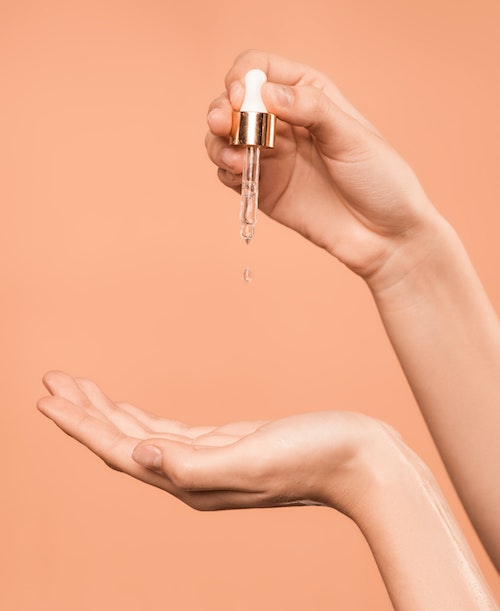
Tout comme le collagène, la quantité d’acide hyaluronique naturellement présente dans notre corps diminue au fil des années, laissant place aux premiers signes de l’âge. La peau devient moins tonique, elle perd de son élasticité et se dessèche. Apparaissent alors les rides et les ridules, tandis que l’ovale du visage s’affaisse. L’utilisation de produits cosmétiques enrichis en acide hyaluronique bio permet d’apporter à la peau cette substance nécessaire à son aspect lisse et rebondi. L’acide hyaluronique bio est l’ingrédient indispensable des soins visant à remodeler et/ou lifter le visage et le décolleté.
Dès l’âge de 50 ans, le taux d’acide hyaluronique naturellement présent dans notre corps chute de moitié. Depuis quelques années, l’acide hyaluronique d’origine naturelle est donc devenu la molécule incontournable des produits cosmétiques visant à lutter contre le vieillissement cutané. Ses propriétés hydratantes exceptionnelles et son haut niveau de tolérance (il présente bien moins de risques d’allergies que le collagène) font de l’acide hyaluronique bio un produit d’exception pour atténuer les rides et repulper la peau. Apporter à son corps de l’acide hyaluronique bio va permettre de renforcer le matelas qui soutient la peau, et compenser la perte naturelle de cette molécule au fil des ans.
Bien entendu, ces techniques ne doivent pas se substituer à un mode de vie équilibré, sans lequel une peau belle, ferme et lumineuse est tout simplement impossible à préserver. Une alimentation saine et variée, un apport quotidien d’au moins 1,5 litre d’eau, une pratique sportive régulière et des nuits réparatrices sont les clefs d’un teint frais et éclatant.
Quel est le meilleur produit à l’acide hyaluronique bio ?
Une toilette quotidienne et minutieuse du visage est également indispensable pour maintenir une peau saine et radieuse. Votre routine beauté doit se composer de soins adaptés à la sensibilité de votre peau et être effectuée selon une série d’étapes :
• Le démaquillage avec une huile démaquillante bio ;
• Le nettoyage avec un savon visage bio ;
• L’application d’un sérum hyaluronique bio et d’une crème à l’acide hyaluronique bio.
Cette routine beauté à l’acide hyaluronique bio préservera votre peau et l’aidera à conserver toute sa jeunesse, plus longtemps. Les soins enrichis en acide hyaluronique bio ou les compléments alimentaires doivent compléter cette hygiène de vie, et non la remplacer !
Quel produit enrichi en acide hyaluronique naturel choisir ?
Il existe trois types d’acide hyaluronique naturel en cosmétologie : l’acide hyaluronique à bas poids moléculaire, l’acide hyaluronique naturel de poids moléculaire intermédiaire et l’acide hyaluronique naturel à haut poids moléculaire. La différence étant la taille des molécules utilisées. Et c’est précisément cette taille qui va déterminer le champ d’action de l’acide hyaluronique contenu dans le produit cosmétique en question.
L’acide hyaluronique bio à bas poids moléculaire
Les molécules d’acide hyaluronique bio à bas poids moléculaire sont de toute petite taille et vont facilement pénétrer les différentes couches de la peau. Elles vont pouvoir atteindre le derme et permettre de relancer la production de collagène, de stimuler l’activité cellulaire et de prévenir le relâchement cutané. La peau est ainsi hydratée en profondeur, repulpée de l’intérieur et visiblement plus ferme.
L’acide hyaluronique bio de poids moléculaire intermédiaire
On observe une excellente pénétration de l’acide hyaluronique bio de poids moléculaire intermédiaire dans l’épiderme. S’il pénètre moins profondément la peau que les molécules d’acide hyaluronique à bas poids, il agit tout de même en profondeur et favorise une hydratation prolongée de la peau. Celle-ci est pulpeuse, les rides sont comblées et les imperfections gommées.
L’acide hyaluronique bio à haut poids moléculaire
Dans ce cas, les molécules d’acide hyaluronique bio sont de grande taille. Elles ne vont donc pas pénétrer la barrière cutanée, mais agir en superficie de l’épiderme. Les ridules légères sont repulpées et l’hydratation s’opère en surface. On utilise cet acide hyaluronique bio dans les produits cosmétiques préventifs ou pour les peaux sur lesquelles se dessinent les prémices des signes de l’âge.
---------------------------------------
⭐⭐⭐⭐⭐ 5/5
Caroline - "Ça fait un an que j'utilise ce masque de nuit !Il permet d'avoir bonne mine le matin même si on ne dort pas beaucoup ! Je recommande vivement."
---------------------------------------
Quels sont les aliments qui contiennent l'acide hyaluronique ?
L’acide hyaluronique bio n’est pas une molécule présente tel que dans l’alimentation. Toutefois, certains nutriments peuvent aider à booster sa synthèse. Parmi les aliments à consommer pour favoriser la synthèse d’acide hyaluronique bio, on retrouve notamment les fruits et légumes riches en antioxydants et les aliments riches en magnésium. L’acide hyaluronique bio sous la forme de cosmétiques naturels reste un moyen incontournable pour préserver la jeunesse de la peau. L’utilisation d’acide hyaluronique bio dans les cosmétiques bio permet de bénéficier de ses pouvoirs hydratants et repulpants. Très bien tolérés par tous les types de peaux, les cosmétiques naturels qui utilisent de l’acide hyaluronique bio peuvent également être appliqués sur les peaux sensibles et réactives.
Comment appliquer l’acide hyaluronique bio ?

Appliquées sur le visage en soin de jour et/ou de nuit, les crèmes enrichies en acide hyaluronique bio vont lisser les rides et ridules et apporter à la peau un effet « coup de jeune ». Ride du lion (sur le front), pattes d’oie (autour des yeux) et plissés du soleil (autour de la bouche) sont estompés, l’acide hyaluronique bio appliqué venant combler le vide à l’origine de leur apparition. Vous pouvez aussi appliquer un sérum à l’acide hyaluronique bio sur peau propre et sèche, juste avant votre crème de jour habituelle.
Sachez que si la plupart des produits cosmétiques enrichis en acide hyaluronique bio sont destinés à rajeunir l’aspect du visage, il existe aussi des produits de soin pour le corps qui contiennent cette précieuse molécule. Laits hydratants, baumes nourrissants, gelées rafraîchissantes… tout produit corporel peut proposer de cocooner votre peau tout en la raffermissant et en remodelant votre corps. Résultat : la peau est assouplie, harmonisée et hydratée en profondeur ! À appliquer chaque jour après votre douche.
Pourquoi privilégier l'acide hyaluronique bio et naturel ?
DÉCOUVREZ CRÈME À L'ACIDE HYALURONIQUE
---------------------------------------
⭐⭐⭐⭐⭐ 5/5
Carole - "Crème très onctueuse qui hydrate parfaitement bien ma peau et qui sent agréablement bon "
---------------------------------------
L’acide hyaluronique bio et naturel ne contient aucune trace d’origine animale. Obtenu par biotechnologie, il est composé de végétaux fermentés en laboratoire. Il implique donc l’utilisation de bactéries qui, souvent, ont été génétiquement modifiées. Cette technique est cependant une alternative à l’acide hyaluronique d’origine animal, bien moins engageant. En effet, l’acide hyaluronique d’origine animale est obtenu par un procédé traditionnel d’extraction de crêtes de coq après broyage et traitements chimiques. L’acide hyaluronique bio convient donc aux végans. Attention toutefois au reste des ingrédients du produit enrichi en acide hyaluronique bio choisi qui eux, peuvent contenir des substances d’origine animale.
Où trouver de l’acide hyaluronique naturel ?
Pour profiter des bienfaits de cette molécule anti-âge, privilégiez l’acide hyaluronique naturel d’origine végétale ! Un produit à l’acide hyaluronique bio certifié est dans l’obligation de répondre à une charte précise, gage de qualité : interdiction d’utilisation d’engrais chimiques, interdiction d’emploi de pesticides chimiques, rotation des cultures pour la régénération des sols… Voilà quelques-uns des critères que seuls les labels bio officiels peuvent vous assurer. Au rayon cosmétique, vous retrouverez ces labels sous l’appellation Ecocert, Slow Cosmétique, BIDH, Cosmébio, Natrue…
---------------------------------------
⭐⭐⭐⭐⭐ 5/5
Anaël - "Ma crème de jour préférée. Depuis que le l'utilise ma peau est plus rebondie, plus douce et en même temps elle ne brille pas. Très bon produit."
---------------------------------------
---------------------------------------
⭐⭐⭐⭐⭐ 5/5
Noemie - "Parfait pour nettoyer et purifier la peau en profondeur, tout en la laissant toute douce."
---------------------------------------
|
Vous souhaitez des conseils personnalisés pour votre routine beauté ?
|
|

|
Article rédigé par : Aline Foulet Fondatrice de la marque cosmétique Bio Akane Skincare Blog Akane Paris, Montmartre
|

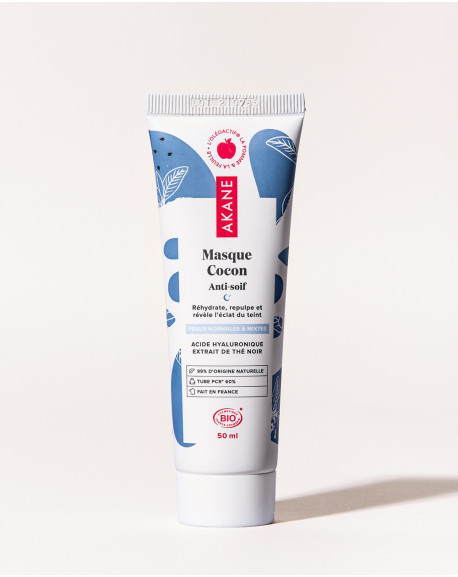
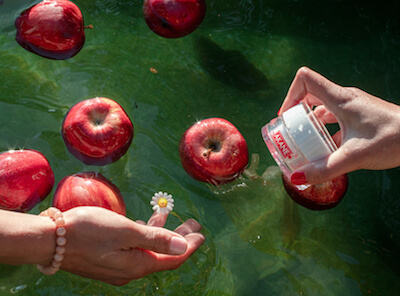
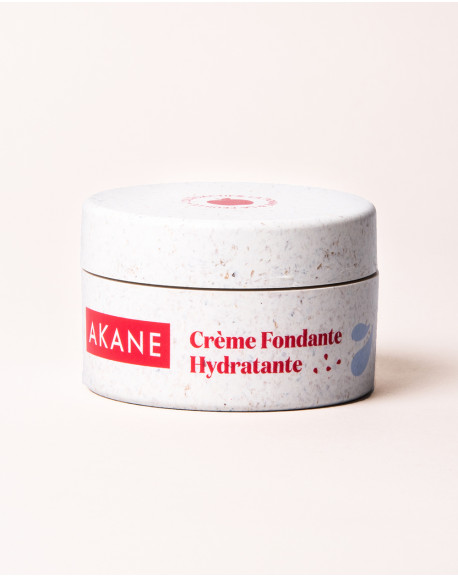
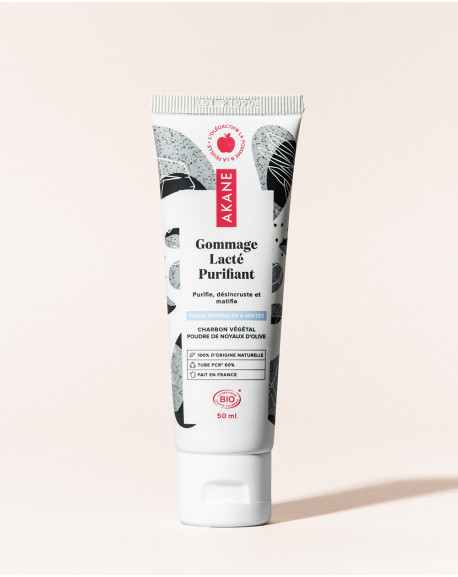


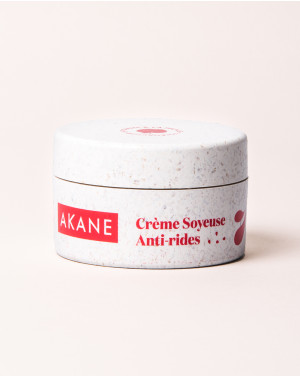
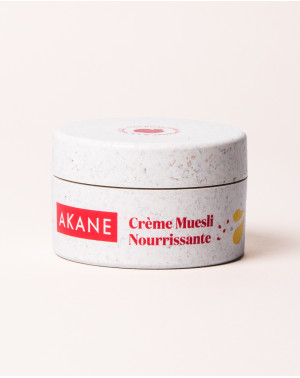

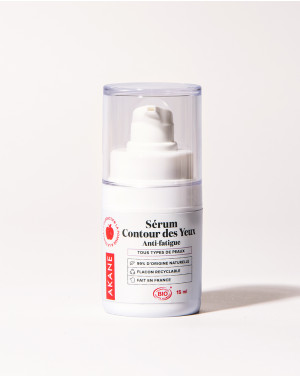




.JPG)